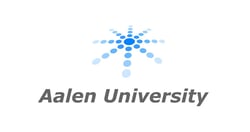Proctoring for online exams is the process of monitoring students during an online exam to prevent cheating and ensure the integrity of the exam. This is typically done through the use of specialized software or human proctors who monitor students while they take the exam. Proctoring can take several forms, including live proctoring, recorded proctoring, or automated proctoring.
Proctoring for Online Exams: Types, Benefits, and How It Works
Explore the comprehensive guide about proctoring for online exams. Learn about various types, key benefits, and how they function to ensure academic integrity and convenience in remote assessments














What is Proctoring for Online Exams?
Type of Proctoring for Online Exams?
1. Live proctoring: This involves a live proctor who monitors students during the exam in real time. The proctor can intervene if they suspect any cheating behavior, such as looking at notes or communicating with others during the exam.
2. Recorded proctoring: This involves recording students during the exam and then reviewing the recordings later to detect any cheating behavior. The recorded videos are usually reviewed by a human proctor, who can identify any suspicious behavior and take appropriate action.
3. Automated proctoring: This type of proctoring uses machine learning algorithms to monitor students during the exam. The software can detect cheating behavior such as looking away from the screen or having other people in the room. Automated proctoring is often used in combination with other proctoring methods, such as live or recorded proctoring, to provide a more comprehensive and accurate assessment of student behavior during exams.How does Proctoring for Online Exams Work?
Each type of online proctoring has its own advantages and disadvantages, and the choice of proctoring method will depend on various factors, such as the level of security required, the size of the exam, and the available resources.
Online proctored exams typically work by using specialized software or a third-party service that monitors students as they take the exam. The proctoring process may span across the entirety of the examination process, including:
- Before the exam begins, students are typically required to go through an authentication process to verify their identity. This may involve showing identification, taking a picture of themselves, or answering security questions.
- During the exam, students are typically monitored using a combination of automated and manual methods. This may involve software that detects suspicious behavior, such as students looking away from the screen or having other people in the room. Additionally, there may be a live proctor who monitors the exam in real time and intervenes if they suspect any cheating behavior.
- After the exam, the recordings of the examination may be reviewed by a human proctor to look for any suspicious behavior and flag it down.
Benefits of Proctoring for Online Exams
Softwares for proctoring in online exams can provide a convenient way for students to take exams remotely, but they also require careful planning and implementation to ensure the integrity of the exam. The specific details of how a proctored exam works may vary depending on the software or service used. There are several benefits of proctoring for online exams, including:
- Convenience: Proctoring for online exams offer greater flexibility and convenience than traditional exams, as students can take the exam from any location with internet access. This is particularly helpful for students who may have scheduling conflicts or who live far from the testing center.
- Reduced Costs: Online exams can be less expensive than traditional exams, as they eliminate the need for physical testing centers, proctors, and other logistical expenses. Proctoring can enable a reduced examination cost and ensure academic integrity at the same time.
- Increased Security: Using specialized software and monitoring systems to prevent cheating and ensuring exam integrity can provide greater security than traditional exams, which may be more susceptible to cheating and other forms of academic dishonesty.
- Accessibility: Online exams can be more accessible for students with disabilities or other special needs, as they can provide accommodations such as extra time or screen-reading software.
Overall, proctoring software can offer a range of benefits for students, instructors, and institutions, including greater convenience, cost savings, improved security, and faster results.
What our customers say
As the University continues to pursue a remote assessment strategy for all courses, confidence in the systems we use to support exam integrity is vital.

Maggie Gibson Birmingham City University

Digiexam receives a lot of attention in the south of Germany since a lot of people share the belief that it will be the only product that will meet the regulatory and data privacy requirements for future online testing.

Dr. Martin Franzen Aalen University
We have students all over Sweden and abroad and they need to be able to complete their exams regardless of location. Digiexam's proctoring solution has become a key success factor for us at FEI.

Magnus Rolf Företagsekonomiska Institutet
What to consider
Meet the platform
Let us show you how it works.
Read more
Digiexam plans and pricing
Find a pricing plan for you
Read moreEnterprise security
Academic integrity can never be compromised.
Read more
0 - 20 000 online exams in 1 year with Aalen University
Going from 0 - 20 000 online exams in 1 year, from purely on-site examination via fully remote and now into a hybrid setting where students have the option to choose whether they wish to take their...
Read more